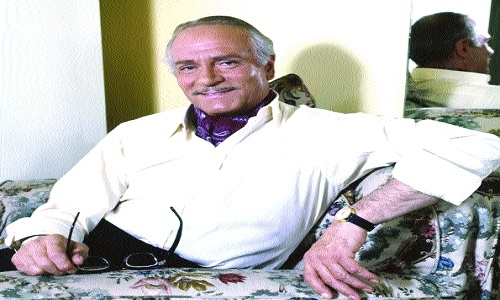Of the inner being of the Actor
| Date :19-Mar-2024 |

By Vijay Phanshikar
“I often think that could we creep behind the Actor’s eyes, we would find an attic of forgotten toys -- and a copy of the Domesday Book! ...”
- Sir Laurence Olivier,
The legendary British theatre and film Actor and Director,
adored for superb
intellectual inputs on theatrical arts. (1907-1989)
THIS takes us to an altogether different comprehension about the Actor as an individual person. In just five words -- an attic of forgotten toys -- Sir Laurence Olivier underlines in the most subtle
manner what we may find in the depths behind the Actor’s eyes.
Multiple interpretations can be available to decipher this statement. But the most
profound impression that the five words offer is that in the process of acting -- possibly for long years -- the Actor, as a person, has left behind his (or her) innocence, his transparency, his openness, his positive naivete. ...! Possibly, he has, in a way, lost his ‘self’ while
making attempts to ‘become’ someone else that is far from his original self. Laurence Olivier brings out this sense of melancholic loss in just five words.
Of course, elsewhere, the great
actor-director-thinker had said, ‘acting’ was an official lying -- for one had to be what one was not (though only for a time). When that is the calling of the profession, then one also may have been forced to leave behind one’s childhood’s frankness as a matter of practised skill. In other words, therefore, one leaves behind an attic of forgotten toys.
One cannot miss the melancholy in this observation. One also cannot miss the deep emptiness a sensitive Actor may experience within. His original persona may be rich with many a gift, many an asset that he can enjoy. But all that may have been of no use to him on the stage
illuminated -- or darkened -- behind the line of footlights. So the feeling of the ‘Domesday Book’.
It is important to know what the ‘Domesday Book’ is all about. It is a 12th century manuscripted document ordered by William The Conqueror to prepare a list of his physical assets -- and also his
liabilities -- spread all over. Here, the
suggestion is that no matter his ownership of all the assets, the royal is not able to enjoy those possessions.
Likewise, the Actor, as a human
individual, may be endowed with much virtue, much goodness, much greatness, much personal glory. Yet, as an Actor, he (or she) cannot use or enjoy all those to respond to the calling of his profession.
To the commoners, this detailed story of the inside of the Actor may not be sensable.
But to the sensitive, what may come out upon peeping deep behind the Actor’s eyes is a sense of a little sadness for the loss of innocence, or natural allowance to live frankly and have every minute of the day or night accountable to the domain of openness.
This inner ideological torture does not suggest melodrama, one must assert. Much to the contrary, it indicates a sincere sadness that Actors may be sensing deep within -- provided they are able to listen to their own inner voice.
For a person of the emotional depth of Sir Laurence Olivier, this sense of loss must have been an experience of lifelong torture, so to say. Many Actors, too, might not be feeling similarly. But then, that was what differentiated Sir Laurence from many in his profession.